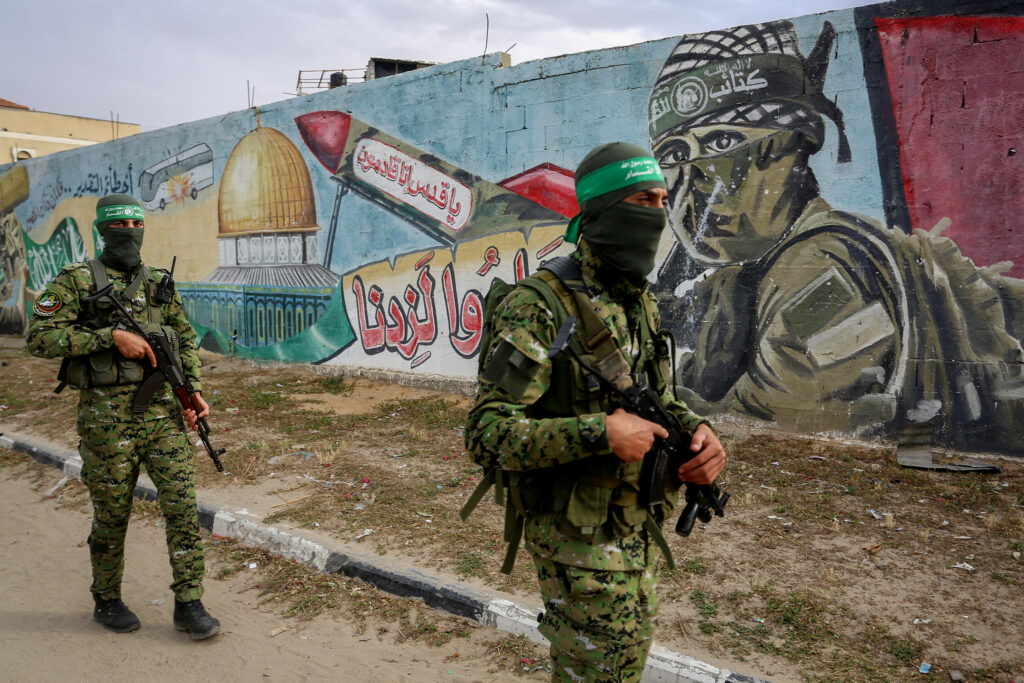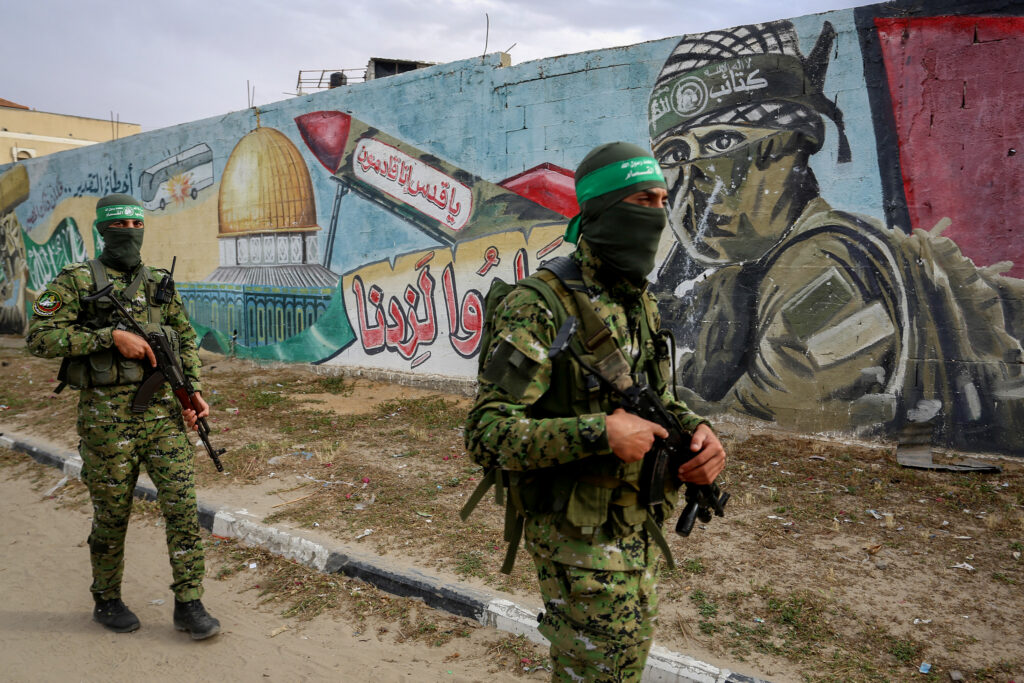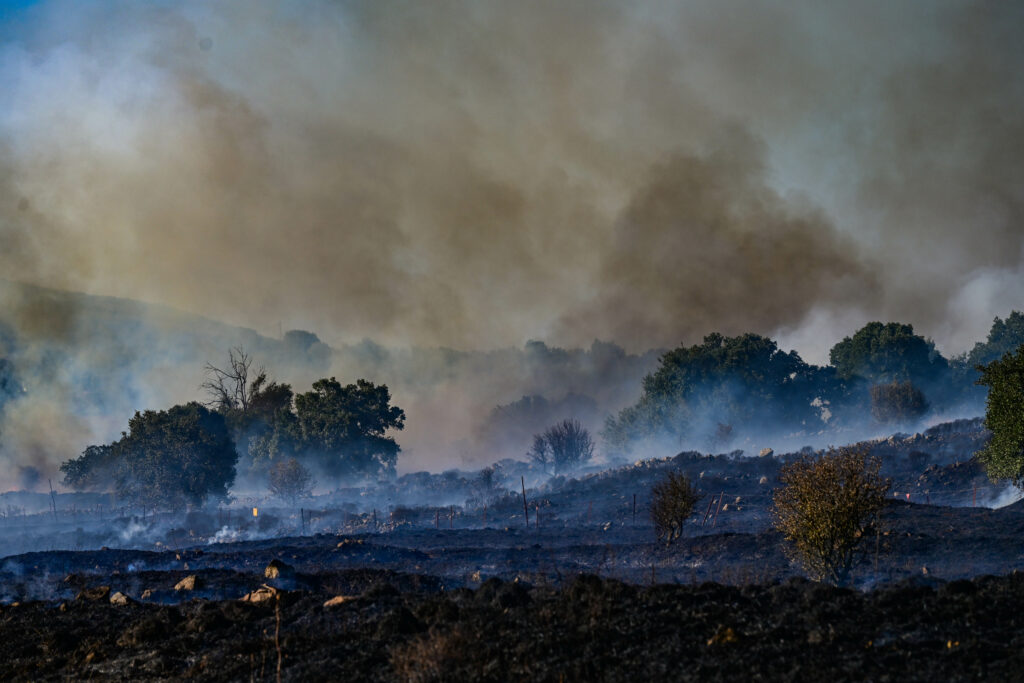
Hostage Negotiations Stalled, Hamas Violence Against Civilians, and Israeli Forces Thwart Iranian-Backed Terror
Hostage Negotiations at a Standstill After Sinwar’s Death
The issue of the hostages remains a top concern for President Biden, according to National Security Council spokesperson John Kirby. During a briefing on Monday, Kirby confirmed that negotiations between Israel and Hamas, which aimed at exchanging hostages for a ceasefire and the release of detainees, have not yet resumed since the death of Hamas leader Yahya Sinwar on October 16.
“We are not currently in a position to say that negotiations are restarting in Doha, Cairo, or anywhere else,” Kirby stated. He noted that initial discussions with Israeli officials have taken place following the significant event of Sinwar’s death. Despite the difficult circumstances, the U.S. has reiterated its commitment to finding a diplomatic path to secure the release of the hostages.
Shin Bet chief Ronen Bar visited Cairo on Sunday in an attempt to restart talks. Bar met with Egypt’s new intelligence chief, Maj. Gen. Hassan Mahmoud Rashad, as Egypt continues its efforts to mediate between the conflicting parties.
Meanwhile, Israeli Defense Minister Yoav Gallant held discussions with top military officials to explore possibilities for securing the hostages’ release. During the meeting, an early proposal surfaced that Hamas could release five hostages in exchange for a two-week halt in hostilities. However, there are reservations within the Israeli government, particularly as the military campaign against Hamas gains momentum.
The death of Sinwar, who masterminded the October 7 attack in Israel, has shifted the dynamics of the negotiations. Sinwar had previously advised Hamas not to rush into concessions, believing that international pressure would eventually force Israel into a deal. With over 1,200 Israeli casualties from the attack and 251 hostages still in Hamas’ custody, the situation remains tense and complex.
Hamas Shooting Civilians Fleeing Gaza Conflict
Hamas terrorists have reportedly been shooting Palestinian civilians trying to flee the northern Gaza Strip amid heavy fighting, according to an Israel Defense Forces medic. The medic, Cpl. Shai Gilboa of the IDF’s 9th Battalion, was photographed in Jabaliya while assisting a Gazan woman injured in the clashes. In an interview with Israel’s Channel 12, she described how Hamas has resorted to violent tactics to prevent civilians from leaving conflict zones.
“Our battalion has been working to put pressure on Hamas fighters, who are preventing civilians from evacuating to safe zones,” Gilboa explained. She added that during the clashes, Hamas opened fire on civilians who were attempting to leave. The injured Palestinians sought help from the IDF, who provided first aid and directed them toward medical services.
Gilboa noted that although there are language barriers between Israeli troops and the local population, many Palestinians have been supportive of the IDF and have openly criticized Hamas. “They smile and wave at us, and curse Hamas right in front of us. Not only are they unafraid of us, but many of them are on our side,” she said.

Despite orders from the Hamas-controlled Interior Ministry instructing civilians to stay in place, thousands of Gazans have followed IDF directives to evacuate areas like Jabaliya, where the military is conducting operations to prevent Hamas from regrouping. Hamas is known to use civilians as human shields, further complicating evacuation efforts. Last week, the IDF reported that Hamas members were beating civilians trying to escape, using force to prevent their departure from areas under attack.
The situation remains tense as Hamas fighters continue to hide among the civilian population, making it difficult for the IDF to conduct its operations without endangering non-combatants.
———————————————————————————————
U.S. Diplomat Hochstein Pushes for Peace in Lebanon
Amos Hochstein, a senior U.S. envoy, visited Beirut on Monday in an effort to de-escalate the conflict involving Israel and Hezbollah, Iran’s Lebanese proxy. Hochstein, who serves as a senior advisor to President Biden, emphasized the importance of resolving the conflict swiftly, expressing that linking Lebanon’s future to regional disputes is not in the best interest of the Lebanese people.
After meeting with Lebanese Parliament Speaker Nabih Berri, Hochstein reiterated that the U.S. administration is committed to finding a diplomatic resolution. Hochstein also met with Lebanon’s caretaker Prime Minister Najib Mikati, who stressed the need for adherence to U.N. Resolution 1701. This resolution, in place since the 2006 Lebanon War, calls for Hezbollah to disarm and for Lebanon’s sovereignty to be restored in the southern region.

ישראל
Despite this resolution being in effect for over 18 years, Hezbollah has continued to grow its influence in southern Lebanon, which has led to renewed conflict with Israel in recent months. Israel, according to reports, has provided the U.S. with a document outlining conditions for a ceasefire, including the freedom to prevent Hezbollah from rearming and operational freedom in Lebanese airspace.
As Israeli airstrikes continue targeting Hezbollah infrastructure, the international community watches closely for any diplomatic breakthrough that could bring peace to the region.
The post Hostage Negotiations Stalled, Hamas Violence Against Civilians, and Israeli Forces Thwart Iranian-Backed Terror appeared first on Israel365 News.
Israel in the News